“You know, if I can gut it out for five more years, five billion people would have a different life.”
Patrick Byrne, the CEO of Overstock, says as he stands in the stern of his boat. Overstock, of course, was the first major online retailer to accept bitcoin. And even though Byrne has had this boat for two years, he says that this is the first time he's used it: He's been that busy.
Byrne spent most of the previous decade fighting corruption and greed on Wall Street. He’s also fought cancer three times, as well as hepatitis C, and was declared clinically dead more than once. And he’s still standing to dedicate this decade to fighting another battle.
He revealed the details to that battle for the first time as we met on his boat, which was moored in Cancun, where we were both attending the Satoshi Roundtable.

It’s worth watching the video, or reading the slightly condensed, cleaned-up transcript, to see the bigger implications of the blockchain. And perhaps even to play a part in building that future. It’s also a powerful, inspirational, and educational argument.
One caveat: This was an impromptu interview, which means we’re all hanging around casually on a boat. The last thing I want on the the blockchain is me and Byrne in bathing suits, and that may also be the last thing you want to see. But in the spirit of transparency, I present my DTube premiere.

Note that the transcript below has been edited, and I recorded on audio more than we videoed. The videographer was Kai Bickle Nygard, who’s tokenizing some huge life-extension advancements via an offshore medical ship called Utopia. He just moved to Puerto Rico to join Brock Pierce and the crypto crew down there. Going to get him on Steemit.
You said you wanted to share a three-minute story about Hernando de Soto and using the blockchain to end world poverty.
PATRICK BYRNE: It’s shocking that [Hernando de Soto] hasn’t won the Nobel Prize in Economics. He’s actually written about as one of the 12 most important economists of all time.
Here’s a quick story: in California in 1849, the Gold Rush. There were 850 different creeks, 850 different mining camps. And at every mining camp, people start off informally. These men start saying, “Okay, would you want to stake a claim?”
You go out and map of your stretch where you’re planning it, make your mark, nail it to that tree. That will be the Tree of Truth. And then that kind of evolves into the old guy in the camp and your guy starts keeping a ledger of different maps. And a few years later, the judges and lawyers show up. They took all of these informal social compacts, and they wove it together into the state law of California.
That’s why the Supreme Court Justice Oliver Wendell Holmes Jr. said, “Great law is discovered, not made”--meaning it’s unearthing what’s already agreed to by the people, rather than taking rules from the top-down.
Well, in the 1980s, there was this terrorist movement in Peru called Shining Path. They butchered and scalped 70,000 people. Sixty percent of Peru had been taken over by Shining Path. Lawrence Eagleburger, our Secretary of State, said [they were] “our biggest threat in the western hemisphere.” They really thought Peru had been lost, that it was another Cuba. Shining Path took over 60% of the country.
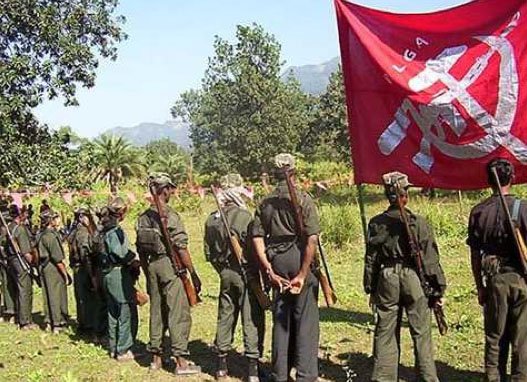
Shining Path rebels in Peru.
And Hernando De Soto, a businessman and economist there, convinced the government to work with him (and had to convince the US Government to support this idea.)
It turns out, that story I told you about California: That’s how billions of people live around the world. Some of them are in creeks. Some of them are in favelas outside. It’s all informal.
If you live like that, you may be living four generations in some shanty or whatever. And you don’t have a piece of paper to prove it. You don’t have a whole bunch of things. So you have no incentive to improve it. You don’t know if the local generalissimo shows up and says, “Señor, you thought that was your grandfather’s land, but that was my grandfather’s land.” So you have no incentive to improve. There’s nothing you can formally leave. No piece of paper you can take to a bank and borrow some money, and buy a fruit stand and start a business.
You can’t even leave the property for too long because someone else will take it.
PATRICK BYRNE: Yeah, exactly. You always have to have a family member there. Or your neighborhood understands that “the Strauss Family, they live in that shack!”
You know, 5 billion people on the earth live outside of formal, legal rights. So, his great book is The Mystery of Capital: Why Capitalism Worked in the West and Fails Everywhere Else. And his answer was this rule of law issue. You don’t have rule of law—legal rights—for two thirds of the people.
He got in Peru--there were 11,000 of these little informal groups. And he worked, started bringing ledgers into Lima. And he’d go back a month later with nice legal documents with red stamps on them from the government. And everybody switched sides. And in six months, this heroic group that looked like it was unstoppable collapsed, and in fact the leaders had to turn themselves into the government to get protection from the people. It’s the last time a terrorist movement was beaten by the west. And it’s been so wiped out of history. It’s kind of weird.
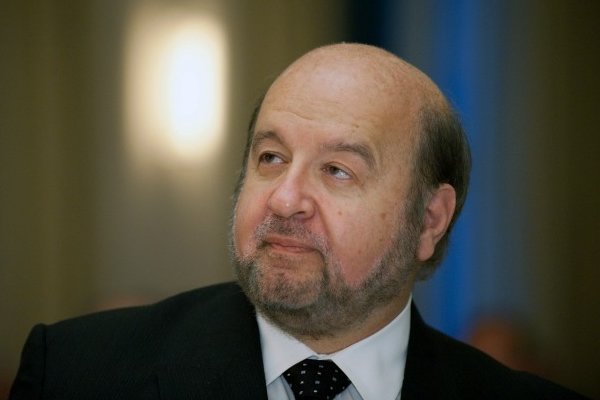
Economist Hernando De Soto.
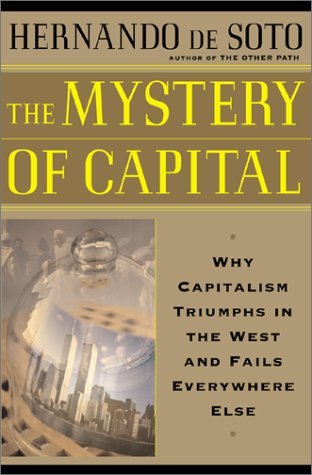
Hernando De Soto’s book, released in 2000.
So once they had the documents, how did that end up pushing out the Shining Path?
PATRICK BYRNE: It turns out that what these kind of groups really have to sell—ISIS, Al Qaeda, FARC, Shining Path—is they roll into your town. ISIS rolls into your town in Syria. And they’ve got a DMV on the laptop. They’re very organized, they’ve got Department of Motor Vehicles, they issue identifications. They come in and say, “Let’s see your certificate of occupancy.”
And they say, “Do you support ISIS?” And if you do, they put a little stamp on it or a sign. If you don’t, they dont say they’re gonna kill you. You’re on your own and they don’t defend you.
So what they really sell to people is: “we’ll protect your property.” And it turns out this is something the U.S. Government totally missed. So with Shining Path, that’s what they were saying to the peasants. They were saying,“You side with us, you folks don’t have any paperwork. You folks may have settled here a hundred years ago, your grandfathers helped us in this valley, but no piece of paper? We’ll defend you if you sign up with us.”
So by subverting that system with even greater security, the government—
PATRICK BYRNE: Now the government’s gonna give you, and recognize, dating back to your grandfather, [property rights]. There’s often some ledger [in the community] saying these five hundred families have agreed and this is the record book. This is actually how [most of] the world lives. And it was overlooked. It’s one of these things that when he wrote the book, everybody was like, “How did we overlook something this obvious?”
One last step I left out: If you were in a place like Haiti or Peru, or the slums of Cairo. And again, if you’re living in some place that your grandfather lived in and great grandfather and so forth. If you do try to get title (and he had hundreds of researchers all over the world documenting this), it may take 30 years, and it’s 217 steps, and at every step, there’s a little petty bureaucrat who wants a little bribe, so it takes like 30 years.
Do the countries create these Kafkaesque bureaucracies on purpose to avoid giving the rights?
PATRICK BYRNE: It’s more like they evolved organically, and all these officials, once they have their digs in, they're against any reform or transparency.
That’s the world. The west has been the exception, but for most of the world, it’s like breathing oxygen. It’s how the world works. And so it’s stuck and it never develops. But [De Soto] said if you could title up Haiti, for example, and it doesn’t mean top-down, governments giving people title: it’s recognizing what the campecinos and peasants already have or whatever, we basically would take up all the aid the West has ever given the developing world since World War II, put it in a box, multiply it by like a hundred, and that’s how much capital would be liberated.

An example of a kafkaesque bureaucracy.
So [De Soto’s] book came out in 2000, and my friend and teacher, Milton Friedman was the first to say, this is the answer. He’s been now embraced across the whole spectrum. There’s now a way, but now the the rap on it is that it has never been implemented.
He hasn’t implemented it except for a couple test cases outside Peru. The blockchain came along, and I was invited to speak at the world’s first global blockchain conference in Amsterdam a few years ago. I was invited to give the opening keynote.
I got up there and gave this talk about a philosophical historical implications of the blockchain. It’s up on YouTube. The title of the speech was “500 Years of Liberalism From Amsterdam to the Blockchain Tipping Point.”

Patrick Byrne at the 2014 Bitcoin Conference in Amsterdam.
Watch the speech in full:
This to me is the trump card of the liberal, of the philosophical liberal… you know Americans use the word incorrectly. Europeans use it correctly.
I said that I don’t have time to do this. I’m gonna take the blockchain and go fight Wall Street, and go make a clean version of Wall Street. Someone now in this audience has gotta read this book by Hernando de Soto, and figure out if we can implement it on the blockchain. So that was four years ago.
Hernando was working on this, but [the groups he was working with] never seemed to get anywhere. I heard last August, six months ago, that he might be free. And I got on a plane to surprise him. I flew down to Peru. It was like one of those kung fu movies where you sit outside the master’s door for three days.
We didn’t do that, but we spent just three days in conversation. We hit it off, and we spent eventually four months in kind of a buddy-buddy movie, going around and deciding whether we can work together. And I said, “I will fund [this].”
The thing is, to implement his ideas now, for the first time it’s possible. It can do digital marketing, social media, the blockchain, and mobile apps. Well, it’s not curing cancer. For example, Overstock is great on all four things. We just won for the sixth year in a row The Best Retail Mobile App--for both Android and Apple. So that's the team. The team that did that is going to be building Hernando’s app. And yeah, we got 2,000 people. So we have spun up a company. We’re taking fifteen very good people at our company--and built this company and funded it and now we’re implementing Hernando’s vision.
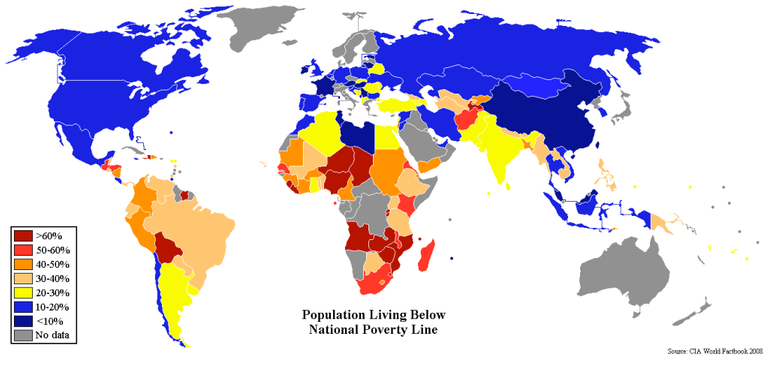
71% of the world lives on less than $10 per day (source: Pew Research).
I think in five years, we can lift 5 billion people out of poverty, and we can create the trend that 5 billion people can lift themselves out of poverty. And what I love about this idea is if it works, we’re creating somewhere between $20 and $200 trillion of capital. That capital doesn’t come into the world in any centralized, or any centralized institution--no government, no corporation, no NGO---which I don’t trust anymore, generally.
Yeah, I get that.
PATRICK BYRNE: But it comes in in this highly fragmented way, so that every shanty and every favela along the slums of Rio, it’s only worth a couple thousand dollars, and anyone can take part if you got a cell phone.
It’s really a beautiful thing. It’s not just that you’re doing it, but the fact that you’re going to do it better through consensus on the blockchain.
PATRICK BYRNE: And we agree and we’re on a first name basis, like 35 heads of state. Every other day I’m with [De Soto], he’s getting a phone call from the premiere of such and such, the prime minister of such and such.
We went to one country, we were asked to see this one country in Africa, and we sent some researchers there a week early, and then he goes in to see the President, and this is one of his great stories, and he goes in to see the President at the appointed time, he’s got a gift for the President. And the President opens it and it’s a bunch of titles, and the President says, “What’s this?”
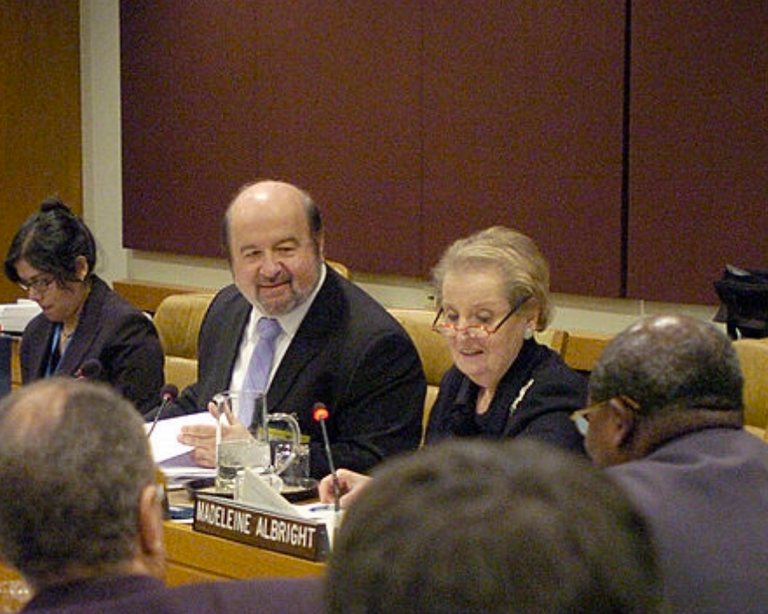
De Soto with former United States Secretary of State Madeleine Albright.
He says, “The titles of the several hundred families who live around your presidential palace here. And see that mark? That’s the Muslim Brotherhood. And the Muslim Brotherhood coming in and titling up all these people.”
So he’s always been kind of defeated by politics in the past. It was kinda weird how it’s really foolish that Bush II did not pick this up. But anyways, in the last few months as we’ve gotten public about what we’re doing, we’ve been invited to lots of cool places: the White House a couple times, teaching people, briefing them on what we’re going to do. And they actually insert it into the national security strategy.
That’s amazing.
PATRICK BYRNE: The new national security strategy was published a couple weeks ago in United States. And I’m told that after our briefing, they were about to finalize the document. And they went back and they added a couple paragraphs. And the national security [strategy] of the United States says, “We want this to happen to the poor in the world.” And it’s a public document, so it’s there.
So we fund this $20 million and we’re gonna just make this happen. I don't want this to wait.
So you gave everyone else a chance to do it, then when nothing happened, decided you just had to do it yourself and get it done.
PATRICK BYRNE: And we’ve been asked in the last few weeks, Gillian Tett of The Financial Times, super well regarded. Almost as well regarded as you. She wrote a beautiful story about it [http://on.ft.com/2C9vcp9] just after Christmas, and you’d expect someone like that to be super cynical. And it’s hard to believe but this could be the answer to poverty. And there was just a Wall Street Journal editorial about it all [http://on.wsj.com/2IeYkhu]. But we actually, I’ve said publicly, I'm gonna give up the rest, I bought this boat a few years ago, and been planning on how to start a [semi-retired] life. I’ve never seen this boat, this is my first time on it.
No way.
PATRICK BYRNE: I’ve never seen this boat because I work so hard. And I’ve been planning on chilling, and now I think it wouldn’t be too fun to be hanging out doing nothing, “You know, if I can gut it out for five more years, five billion people would have a different life.” So I’m going to give five more years and then we’re going to get to the boat!
And then you’re going to realize how to stop another problem in the world and take another five years after that.
PATRICK BYRNE: Nothing’s going to top this.
I’m going to mark my calendar. I’m going to follow up with you and see what you’re doing in five years.
PATRICK BYRNE: So that’s my seventeen minute, three minute Hernando De Soto story.
We were talking at one of the roundtables about how everyone in the public ties the success of what’s happening to the price of bitcoin, which has nothing to do with what we’re talking about. They think that if bitcoin drops too low, the whole revolution is over. But how do you get people to understand these other uses, like just a family escaping a totalitarian regime with their assets intact because all they have to do is memorize their seed phrases. Then they can rebuild their life on the other side of the border.
Well four years ago, this became my strategy. I’ll lay out our whole strategy. And you’ll get this. The base layer is Hernando De Soto, and that’s what lays the millions of dollars of capital. The layers are you need are capital, you need money, and you need a capital market. And that’s assuming that you need supply chain, and then you need voting. Those are the elements. However, there’s a new age coming to humanity, on the blockchain. I don’t know how it’s going to work, but the fundamental process I want to have are the creation of money, capital markets, supply chains, and voting. Assuming that it’s still at the age of the consent of the governed!
I’ve invested in the blockchain versions of all those layers. The Hernando layer, that’s the blockchain meets land. The second is where the blockchain meets money. And for the blockchain meets money, the most advanced guy in the world is this guy, Gabriel Abed. And he, two and a half years ago, he talked the Barbados government into letting him digitize the Barbadian dollar. And we successfully have done it, as of the last six weeks. It’s the only country in the world you can walk in…
GABRIEL ABED: We’re working on others now.
PATRICK BYRNE: Well, the only one right now though.
GABRIEL ABED: Yes
PATRICK BYRNE: Yes, Barbados. You can walk in and buy a chicken leg from a store paying from your phone on a mobile wallet, but the money in that wallet is not tied to any bank account. It’s just digital money. It’s not mobile money tied to a bank account. So here’s another earth-shaking thing: 15% of the population of poor countries have a bank account, but 140% have cell phones (because some people have two phones).

Bitt founder Gabriel Abed speaking at the 2017 North American Bitcoin Conference.

For 30 years, economists have been talking about this thing called “the Problem of the Unbanked.” Since 85% of the world doesn’t have a bank account [according to the World Bank, that number is closer to 50% worldwide], somebody’s cutting sugar cane for $5 a day, they’re putting it in their sock, they go back to their shack or wherever they live, they put it in a shoe box. That’s how most of the world lives. But everybody has a cell phone. Even in the poorest countries. So we can change this. With digital money, that whole world I just described is over. This kid, this pirate, rogue-ish looking fellow is the guy who figured that out. And in Barbados, we have broken the sound barrier as of about six weeks ago. You can actually do it in Barbados and we’re about to do it in more countries.
So I think of those processes that I just described as the fundamental processes of civilization: You’ve got the formation of money, capital, capital money, capital markets, commerce, supply chain, voting. What else do you need?
Thanks for reading. Would love to read your comments below. And if you’re interested, I will ask Patrick to expand on the other layers of his plan for a future post.
I dont think it can end poverty it can reduce it yes but they real problem in the system the extra small minority that control the vast wealth for no reason only because the system allowed them have it. Poverty in reality can never really be end in the current system. Great article i would love to check out my blog Thanks
I'm down with that in some way. Ruled by few is the current state and to be more specific money and power rules anything else.
The Steem blockchain has the potential to be an integral part of this. We have so far only scratched the surface of its capabilities.
Very good vibes and dreams... and some people made money out of crypto and blockchain and bought yauchts and boats... BUT how would these technologies HELP people indeed?
Awesome work as always Mr Styles. Had to comment first before I watch the video as well as the article. I'm off to read this lengthy but worthy article now.
Brilliant article, @neilstrauss! I have felt deep down for the past few years that blockchain can lift 5 billion out of poverty and it's exciting to hear some serious players talking and acting on the same thing. I really love this! You get my upvote, follow, resteem and even some twitter tweets to over 15,000. Patrick Byrne is brilliant too. I'm going to get Hernando De Soto’s book, read it, watch Patrick's speech in Amsterdam, one of 4 counties I've lived also, along with anything else you can get from Patrick, and really give this some thought and energy as to how I can best help make this vision happen too. Thanks so much for sharing this! All the best
And tomorrow is St. Patrick's day too... ;-)
Always love reading your materials. It would be a great thing if this technology on the blockchain could end poverty and It's inspiring to see people using technology to aim to help people around the world.
Blockchain is yet to still make it's biggest impact globally and I believe it's here to stay too :)
Agreed on all counts. We are still in the infancy of this.
Yeah. End the poverty, end the war as well. Bring back our worl in peace.
Thanks for continuing to post thought-provoking, quality content on Steemit, Neil.
And congrats on the DTube debut! It may have been a shaky camera with an angle that focused on a couple of hairy chests, but it added context to the setting where the impromptu interview unfolded.
Haa, @wadepaterson, we need more hairy chests on the blockchain. It's important to be transparent about the hair on one's chest.
And you're right: I added the video mostly for context, but also to use DTube for the first time. Ready to use it more, but with less shakiness, and of course more chest hair.
I like your post.
Thank you for sharing! I am beyond excited for what the technology of blockcahin is capable of and the direction it will take in the coming years! There are millions of people that will benefit from this revolutionary tech! :)
Of course, and welcome to Steemit!
That's amazing work.
Reminds me of your past
Neil: Great article! It is refreshing to see you educating others on the greatness of distributed ledger tech ("DLT")!
We in America truly are lucky to have such an enabling infrastructure, and I think that downplays our recognition of the impact DLT will have to the many many people living in these imprisoning conditions. Upward mobility is so difficult when your family cant use their property as collateral for a loan, or transact with people more than a walking or driving distance away.
We have a lot of work to do, but with people like you on board we can do great things! #BlockchainAllTheStuffs!
I like your post. Patrick Byrne, the CEO of Overstock, says as he stands in the stern of his boat.
This has to be the best thing on the trending page today. Seriously though, this was a great read. I'm curious to see if the power structures that benefit from existing arrangements let it happen without too much of a fight though.
It's interesting that he would mention Milton Friedman and even call him a friend, as his work it not exactly build on the idea that capitalism has failed. Quite the opposite.
yeah, Blockchain is the revolution, and the platform like steemit is really a golden opportunity for all of us to change our lives,
Just wait and watch !
Crypto currencies are touted as a way to unite the globe with a decentralised currency. As for their use in helping those in poverty stricken nations, I can see that crypto currency potentially could help with crypto currency being used in lieu of a hyper inflated local currency. In saying this securing a financially stable currency would alleviate some issues, however there are still many other issues which effect these poverty stricken nations which need to be looked at in tandem ie lack of access to education, food, medicine or clean water not to mention being effected by war, poverty and famine. Without an approach which takes all aspects of local life and issues into account could lead to an aid attempt that could infact exacerbate the situation.
I'm damn sure that it will bring some hope in the eyes of 95% poor world. Because what is happening in the world right now is that the 70% of money is holed by just 5% people. This is called centralisation. But block chain brings the power to a common man. It gives the freedom to people ,just sit back take a deep breath and watch the world will change, so stay absolutely positive.
As there have been riches, there has been poverty. the rules of nature.
I Upvoted And Followed you. do The same for me and we could help each other Earn.
Please Follow me and help me get started here my friends!!
Hope to get this going and make income enough to survive and thrive, telling you all a lot of interesting things and making quility Content!
<3
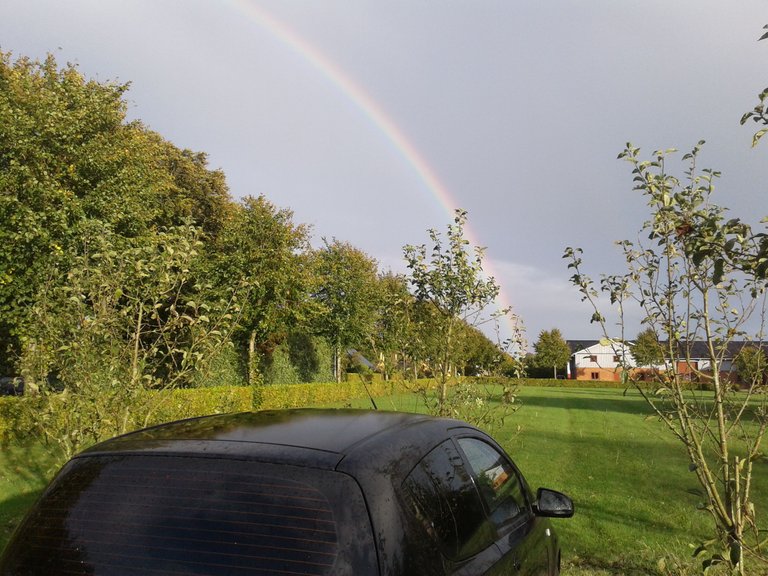
please follow and reply and i will follow back!
I believe that through this platform we can super pass poverty
Loved this . I’m of the view ... that economics as we know it has served the 1% . The day we change the whole concept of money as we know it ..... that’s going to be the the greatest change and way to end poverty .
We are already in Alpha 0.3 and things are looking great
Ending poverty is a big claim.
There is no doubt that many owners of smartphones or computers will improve their economic condition, and they will pull up others, like a never-ending process. However, poverty is not only owning money or assets, but it is also much more, and it depends on governments interests and policies.
Many thanks for sharing.
Thanks, Neil! This was absolutely eye opening!
I had not heard of Hernandes de Soto previously and the idea of guaranteeing the rights to property being a large problem in places around the world is not obvious for people who have grown up being used to owning property with official documents recognized by the government. I'm definitely going to check out his book.
There was a recent NPR Planet Money piece: https://www.npr.org/sections/money/2018/02/07/583999476/episode-337-the-secret-document-that-transformed-china
It talks about the first nationally recognized experiment to transition from communism to capitalism. Farming in communist China was performed on land that was jointly owned and the food would be collected and re-distributed to everyone in the country. The farmers were always hungry, but because there was no incentive to work harder, nobody was willing to increase crop yields. The secret document refers to a group of farmers that decided to split the land and then also plan a certain amount that would be given to the government and allow the rest to be kept by the individual farmer. This provided incentive for them to work harder because they would very directly benefit from it. The trouble that almost occurred was when the local police caught wind of it. Thankfully, the farmers were already in touch with a higher level party official, so they protected from the local police.
All in all, that is to say people are incentivized to put in effort if it translates to an obvious direct benefit to them. The rules of law and ledgers are important to guarantee that their efforts aren't wasted by recording what people own so that they can build on top of it in the long term. And lastly, the law and ledgers must be recognized by a larger body of people in power for it to have an effect.
You know what I'm always thinking about this and how the world walks with this cryptocurrencies.
As an American who refuses to allow my assets to be preyed on by banks (again), I could really benefit from this.
Thanks!
Super exciting, @NeilStrauss!
My eyes were opened when I read a Matt Ridley book a few years ago that mentioned the high percentage of property under dispute in India, yet this is the first I have heard of Hernando De Soto.
I would love a future post with Patrick expanding on the other layers of his plan!
steem has already helped me to contribute to my family. I only wish that the silly govt's don't cause further trouble by letting out statements that cause fud
Wow.
(And I’m not a ‘just comment with wow kind of guy.)
Every every single piece of content on Steemit was this densely packed with unique ideas well-crafted concepts, this place would be the go-to source for Big Ideas.
Wow.
ok Neil I read the above article and I relate to parts of it and understand bits and pieces of it. But to be honest I still dont know how this blockchain thing works and how will it alleviate world poverty. If you can do a article on blockchain in detail it would be amazing.
Congratulations @neilstrauss! You have received a personal award!
Click on the badge to view your Board of Honor.